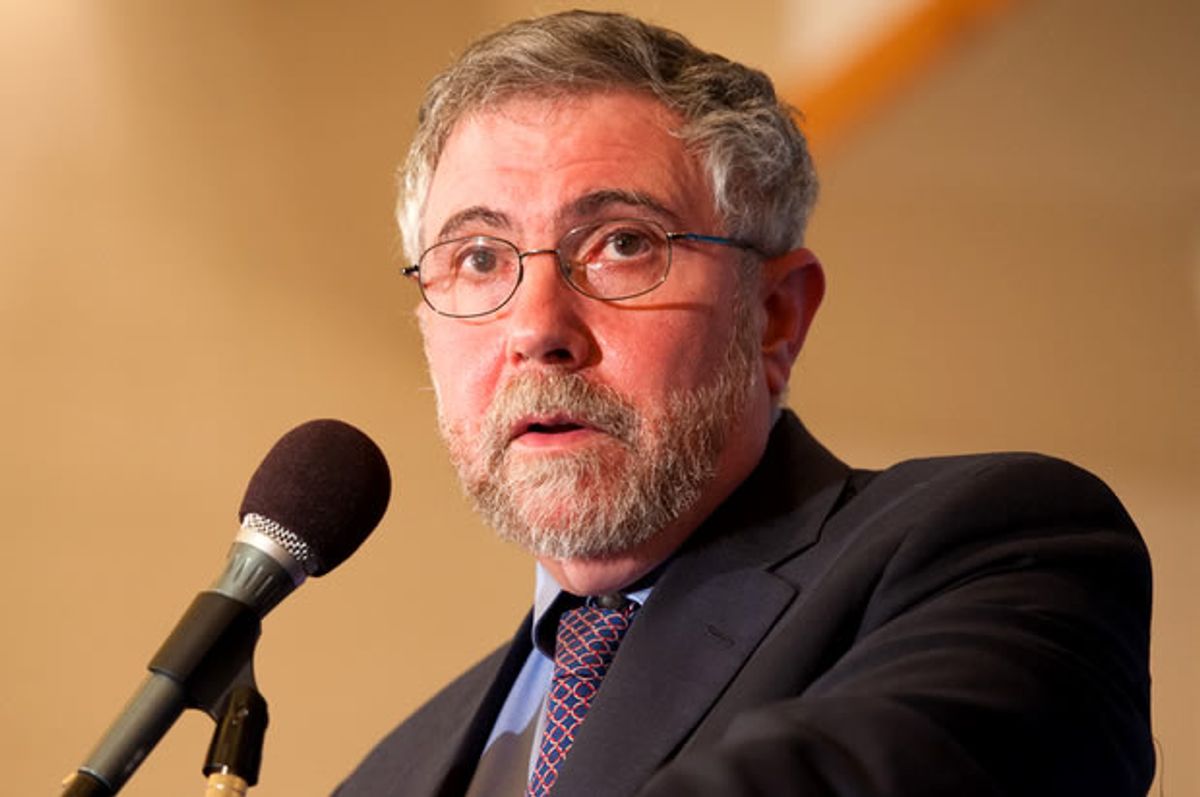New York Times columnist Paul Krugman had some harsh words for England and the conservative "triumph of inanity" that he believes yesterday's election results to be.
Krugman insists that he is not out to "bash the Brits," because President Barack Obama has adopted this narrative "boilerplate about the need to make hard choices" in the face of an economic downturn. Countries in economic free fall, he writes, shouldn't be comparing themselves to ordinary families in need of budgetary "belt-tightening" -- they should attempt to spend their way out a depression.
Unfortunately, the power of this narrative -- and the willingness of conservatives both here and on the other side of the pond to exploit it -- has created a situation in which those who want to impose austerity measures for ideological reasons are elected into positions from which they can do so.
Mr. Wren-Lewis suggests that it has a lot to do with the power of misleading analogies between governments and households, and also with the malign influence of economists working for the financial industry, who in Britain as in America constantly peddle scare stories about deficits and pay no price for being consistently wrong. If U.S. experience is any guide, my guess is that Britain also suffers from the desire of public figures to sound serious, a pose which they associate with stern talk about the need to make hard choices (at other people’s expense, of course.)
Still, it’s quite amazing. The fact is that Britain and America didn’t need to make hard choices in the aftermath of crisis. What they needed, instead, was hard thinking — a willingness to understand that this was a special environment, that the usual rules don’t apply in a persistently depressed economy, one in which government borrowing doesn’t compete with private investment and costs next to nothing.
But hard thinking has been virtually excluded from British public discourse. As a result, we just have to hope that whoever ends up running Britain’s economy isn’t as foolish as he pretends to be.

Shares